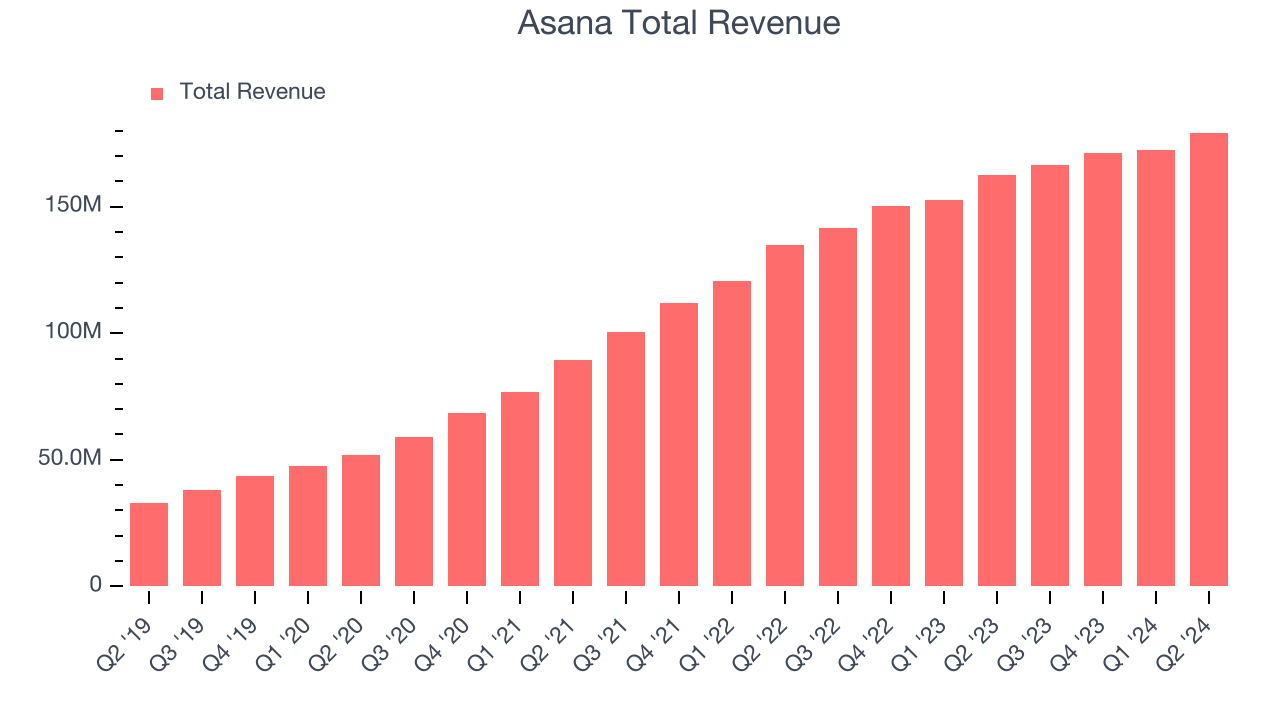
Work management software maker Asana (NYSE: ASAN) will be reporting earnings tomorrow after the bell. Here’s what investors should know.
Asana beat analysts’ revenue expectations by 0.9% last quarter, reporting revenues of $179.2 million, up 10.3% year on year. It was a mixed quarter for the company, with a solid beat of analysts’ EBITDA estimates but EPS guidance for next quarter missing analysts’ expectations significantly. It added 786 enterprise customers paying more than $5,000 annually to reach a total of 22,948.
Is Asana a buy or sell going into earnings? Read our full analysis here, it’s free.
This quarter, analysts are expecting Asana’s revenue to grow 8.5% year on year to $180.7 million, slowing from the 17.7% increase it recorded in the same quarter last year. Adjusted loss is expected to come in at -$0.07 per share.

Analysts covering the company have generally reconfirmed their estimates over the last 30 days, suggesting they anticipate the business to stay the course heading into earnings. Asana has a history of exceeding Wall Street’s expectations, beating revenue estimates every single time over the past two years by 2% on average.
Looking at Asana’s peers in the productivity software segment, some have already reported their Q3 results, giving us a hint as to what we can expect. Monday.com delivered year-on-year revenue growth of 32.7%, beating analysts’ expectations by 1.9%, and Atlassian reported revenues up 21.5%, topping estimates by 2.8%. Monday.com traded down 19.7% following the results while Atlassian was up 19%.
Read our full analysis of Monday.com’s results here and Atlassian’s results here.
There has been positive sentiment among investors in the productivity software segment, with share prices up 16.8% on average over the last month. Asana is up 19.2% during the same time and is heading into earnings with an average analyst price target of $14.16 (compared to the current share price of $15.50).
Today’s young investors won’t have read the timeless lessons in Gorilla Game: Picking Winners In High Technology because it was written more than 20 years ago when Microsoft and Apple were first establishing their supremacy. But if we apply the same principles, then enterprise software stocks leveraging their own generative AI capabilities may well be the Gorillas of the future. So, in that spirit, we are excited to present our Special Free Report on a profitable, fast-growing enterprise software stock that is already riding the automation wave and looking to catch the generative AI next.
